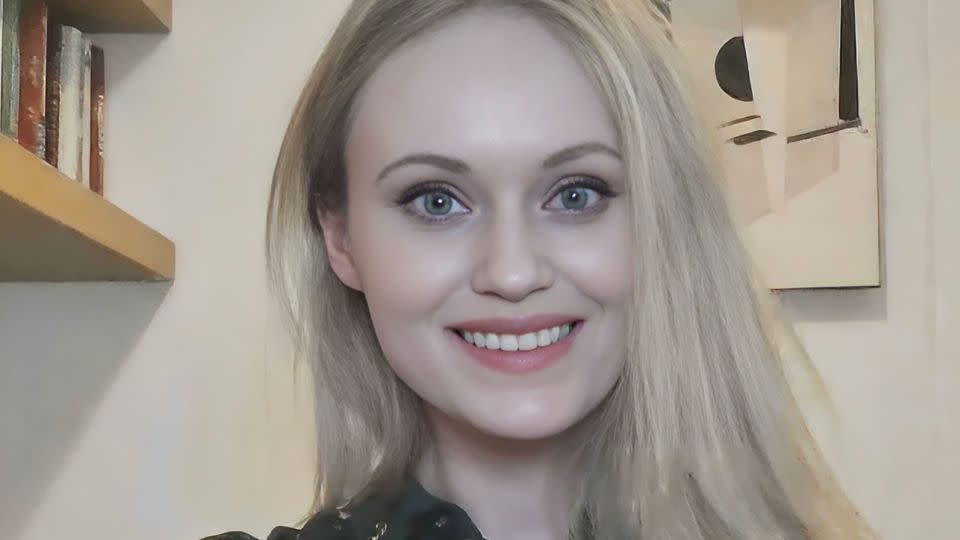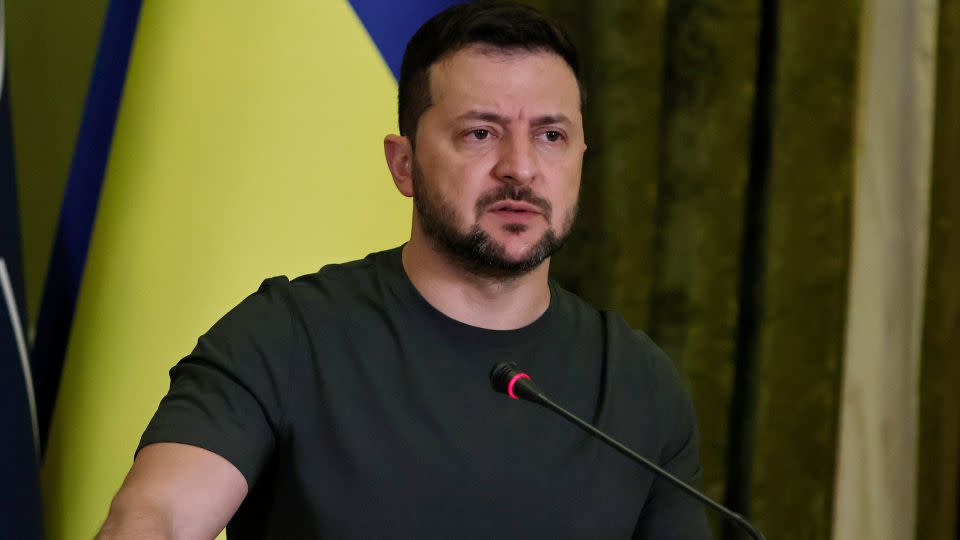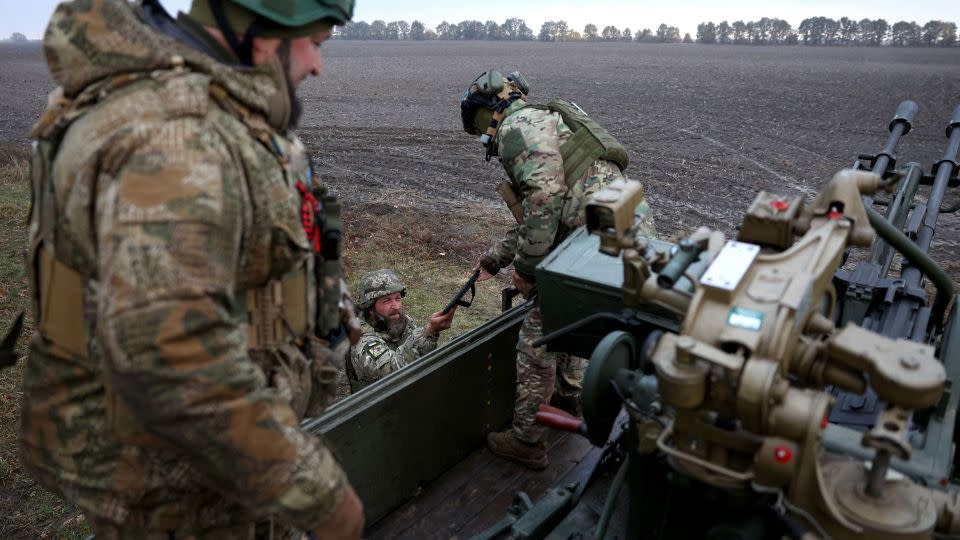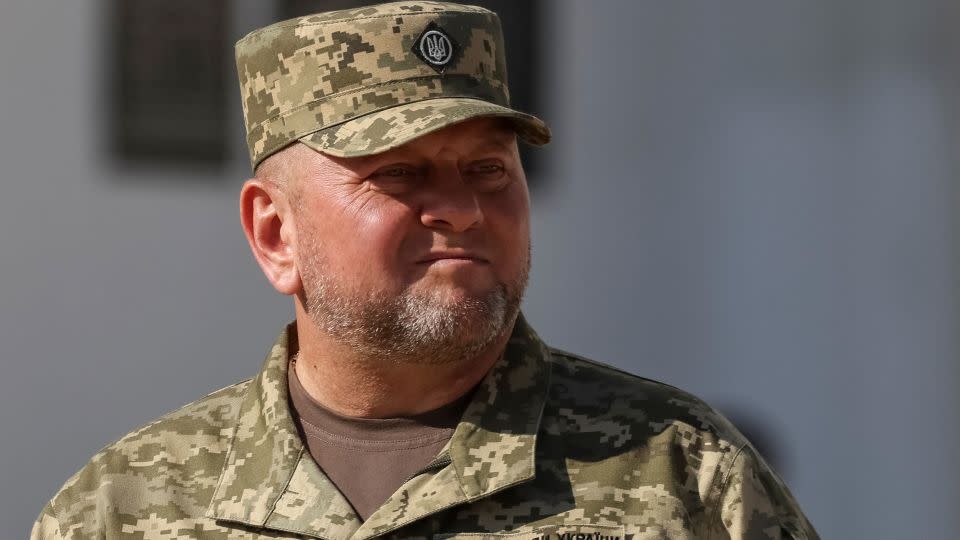Opinion: Who a ‘stalemate’ in Ukraine really benefits
Editor’s Note: Jade McGlynn is a non-resident senior associate at the Center for Strategic and International Studies and author of two books, “Russia’s War” and ”Memory Makers: The Politics of the Past in Putin’s Russia.” The views expressed in this commentary are her own. Read more CNN opinion here.
Responses to the recent statements by the commander in chief of the Ukrainian military, Valery Zaluzhny, warning of a stalemate war between Ukraine and Russia, have been varied and revealing.

In last week’s lengthy interview with The Economist, Gen. Zaluzhny set out — and proposed solutions for — problems that anyone who has spent time on the front, or with soldiers and instructors recently returned from frontlines, already knew.
His interview is not a revelation or admission. It is an intervention on behalf of Ukraine, a call for honesty.
Not everyone welcomed Zaluzhny’s call, let alone heeded it. Ukrainian President Volodymyr Zelensky denied the war had reached a stalemate, while his chief diplomatic adviser, Igor Zhovka, even questioned the wisdom of participating in the interview at all.
Some Western military analysts, confusing a pro-Ukrainian stance with wishful thinking, rebutted the general’s conclusions. On the other side, skeptics of Western support for Ukraine gloatingly cited the interview as evidence that Ukraine should have capitulated at some imagined earlier opportunity.
Speaking of active imaginations, it has been widely rumored that a number of Ukraine’s Western partners have been trying to force Ukraine towards a ceasefire. If so, they have failed to understand Zaluzhny’s argument — not for lack of intelligence but for lack of willingness to accept the context and motivations accompanying this intervention.

The Russian and Ukrainian word for ‘stalemate’
Dmitry Peskov, Russian presidential spokesman, is on hand to help reacquaint Western leaders with reality. In response to the essay, Peskov claimed it was “wrong to say the war was moving in the direction of stalemate” and insisted Russia would achieve all of its stated war aims.
Peskov’s remarks serve as a timely reminder that Ukraine is not the intransigent party here. It is not Ukraine that is desperate to continue war despite plentiful options to stop the bloodshed — it is Russia.
In Russian, and some variants of Ukrainian, the word for a stalemate is rendered as ‘tupik.’ The word carries connotations of blindness and stupidity. In all senses, Russia is certainly not in a tupik. The Kremlin can see a clear way forward, grinding down Ukraine while it waits for Western resilience and supplies to dry up.
The West, on the other hand, certainly is in a tupik. There is little to gain from pointing fingers about the delayed supplies and what difference they might have made in autumn 2022 or even early spring 2023, even if the thousands of Ukrainians who consequently died deserve at least this.

There is however plenty to gain from examining the attitudes that informed this reluctance and will continue to hamper Ukraine’s self-defence unless radically re-examined.
What ‘winning’ looks like to the West
Perhaps the most glaring deficiency is stale western thinking. It is as if the West refuses to have a strategy for this war. The US does not appear to want Ukraine to win, if we define winning as returning all its taken land. Western European leaders, even the Brits, who previously lobbied the US for more weapons, now wait to see what Washington says rather than act on their own initiative to resolve a war that impacts their continent much more than North America.
NATO is not ready to offer credible deterrence via membership, even though other countries that were either part-occupied or at war have joined, namely West Germany.
The combined impression is one of Western irresoluteness, the root causes of which can be deciphered by unwrapping the insidious phrase ‘Ukraine fatigue.’ One reads that ‘Ukraine fatigue’ is forcing leaders to explore news ‘ways out’ of the conflict, presumably through Ukrainian territorial concessions to Russia.
But why is the West so fatigued by this war, when a strong majority of Ukrainians affirm the need to fight on? And would there still be ‘fatigue’ in Western capitals if Ukraine had retaken more territories during the summer counteroffensive?
Honest answers to both questions clarify that ‘Ukraine fatigue’ is a misnomer: This isn’t about tiredness, but rather the West’s lack of resilience, itself an inevitable consequence of the West’s refusal to admit the limitations of its own worldview.
For Putin, war is sustainable, peace is probably not
Initially, many laughed at the Russian leadership for its failure to understand their Ukrainian opponents, its inability to see Ukrainians as they are in reality, rather than as Russian historical obsessions, propaganda and imperialistic worldviews depicted them.
Yet, many in the West apply the same self-absorbed lens to viewing Russia. They continue to presume President Vladimir Putin acts according to the same rational calculus as they do; that Russian society is as outraged by the war, or at least the sanctions and high death rate, as their societies would be; that the Kremlin elites will turn on the President when his war threatens the types of assets and interests Western elites hold dear.
But Putin isn’t worried about any of these things. He is safely ensconced at the top of his power vertical and preparing for another six-year term.
For now, a static war suits Russia very well: it is socio-politically sustainable (there is currently no need for mobilization and the public are largely happy to accept the war). It is economically sustainable, and it is militarily sustainable due to stockpiles, increased production capacity and supplies from partners like Iran and North Korea.
There is no democratic pressure on Putin to stop the war and no structures even exist through which such pressure could emerge.
For Putin, the war is sustainable, but the peace probably is not. The war provides cover and justification for an increasingly repressive state, weakened welfare system and centralized governance. It consolidates the population against an external enemy.
On the contrary, peace would lead to awkward questions: For what did so many men die? Where are their bodies? And why did the army fail to achieve the stated aims of the ‘special military operation’? In this light, it is understandable that Russia has shown no serious interest in stopping the war.
Putin has said again and again that Ukraine doesn’t exist. We have Russian officials boasting almost weekly of kidnapping Ukrainian children and indoctrinating them to hate their own country. We have pages and pages of genocidal intent from state journalists. Russia has written an entire national security strategy outlining its position that the West is in freefall and now is the time to reclaim their rightful decisive place in a new multipolar order. It has reorganized its education, cultural and foreign policy doctrine to place society on a gradualist war footing.
When Russia says it will pursue its war aims for as long as it takes, it has the ideological and literal infrastructure to back it up. The West doesn’t.
For now, the war is not an existential threat to the Euro-Atlantic security order: It doesn’t need to intervene directly, or send troops. But this appears to blind some to the fact that, while the war is not an existential threat to the Western security order, Ukraine losing would pose such a threat.
In the event of Ukraine’s defeat, what happens with the enormous numbers of weapons and refugees? How would Europe manage the ensuing popular insurrection? What does Russian victory mean for global nuclear proliferation? Would NATO remain viable?
Answering uncomfortable questions
In Putin’s December 2021 ultimatum he wanted a return of NATO to 1997 borders; in other words, a restoration of Russia’s sphere of influence in Eastern Europe. When I spoke to Kremlin advisers in summer and autumn 2022, they were all bamboozled by the West’s interpretation of this as a gambit or joke: it wasn’t, it was a serious negotiating position that Russia wished to achieve or at least approximate.
If they dealt with Russia and Putin as they are, as they have constantly shown themselves to be, any wavering Western leaders would soon recognise the need to devise a strategy worthy of the threat.

Perhaps this is why they don’t ask these questions and instead cling to a vision of the world that does not exist, and perhaps never existed.
In so doing, they are setting Ukraine up to lose. As Gen. Zaluzhny explained, Ukraine does not have the weapons, supplies or men to win the war as it is currently being fought. He lays out a concise military strategy to return manoeuvrability to what has become a positional war.
A similarly adaptable and bold political strategy is required from Ukraine’s allies — one that goes beyond just money and weapons deliveries and entails a meaningful shift in European economic and social models. North Korea has delivered over 1 million shells to Russia. The EU had promised Ukraine the same but is unable to fulfil the order. It should not be beyond the wit of the EU to match North Korea — and it isn’t, but it is seemingly beyond its will.
Any viable strategy of more fulsome support will also require honest conversations with electorates as to why supporting Ukraine is in these countries’ direct national interests. Such dialogue is long overdue in many countries, where people have tired of the moralistic rhetoric around freedom versus tyranny.
These phrases are applicable to Ukraine but have sadly lost all meaning following the ‘global war on terror.’ Any residual meaning is further undermined by the use of moralistic language as a crutch to avoid admitting that the West has no strategy for Ukrainian victory and that its current position will leave Ukraine without what it needs to defend itself, risking the lives of thousands of men and endangering its own populaces in the process.
These are stark and uncomfortable conclusions. But what does the power of liberal democratic values and economic reach really count for when Russia’s ally, North Korea, can deliver on promises to its partners but the EU cannot?
What is power without the willingness to use it? Inevitably, decline. If the Euro-Atlantic community wants to avoid a more precipitous drop, it is high time to look down, see where they are heading, and change course — starting in Ukraine.
For more CNN news and newsletters create an account at CNN.com


